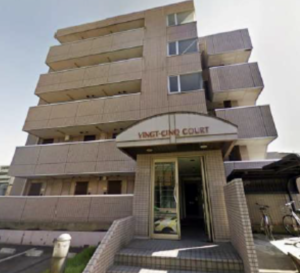Asbestos in Real Estate: Understanding the Risks
and Compliance in Light of Recent Law Changes
Introduction
Purpose and Overview
In October 2023, new regulations made asbestos inspections mandatory for many property-related activities.
Understanding these requirements is crucial for anyone planning renovations or demolition.
Failing to comply with the law can lead to significant penalties, making it essential to be informed and prepared.
Background and Importance of Legal Revision
Asbestos is known for its durability and resistance to heat, making it a popular choice in construction for decades.
However, its health risks—particularly when its fine fibers are disturbed and released into the air—are well-documented.
The legal revisions that took effect in recent years aim to minimize these risks by enforcing stricter management and removal procedures.
These changes are not just bureaucratic; they are a critical step in protecting public health.
Understanding Asbestos and Its Risk
What is Asbestos?
Asbestos is a naturally occurring mineral fiber that was widely used in construction materials due to its fire-resistant properties.
It was commonly found in a variety of building materials, including insulation, roofing, and flooring.
Health Risks of Asbestos
The primary danger of asbestos lies in its fibers.
When materials containing asbestos are disturbed, such as during renovation or demolition,
these fibers can become airborne.
Inhalation of asbestos fibers is known to cause serious health conditions, including lung cancer, mesothelioma, and asbestosis.
These diseases often develop decades after initial exposure, making early prevention and management crucial.

A Historical Perspective on Asbestos Regulation in Japan
Global Trends and Japan’s Response
Asbestos was used extensively worldwide until its health hazards became widely recognized.
Countries, including Japan, began to tighten regulations to protect public health.
In Japan, the regulation of asbestos use began in the 1970s,
with a complete ban enacted in 2006.
These regulatory steps were taken to prevent the long-term health risks associated with asbestos exposure.
Key Developments and Legal Revisions
The most recent changes, which came into effect in April 2022, require pre-construction asbestos inspections
and mandate the reporting of findings to authorities.
This system ensures that asbestos risks are identified and managed before any construction work begins,
reducing the potential for harm.
The Presence of Asbestos in Buildings
Common Applications of Asbestos-Containing Materials
Asbestos was widely used in various types of buildings, including residential homes, warehouses, office buildings, and public facilities.
In residential and warehouse settings, it is often found in exterior walls, roofs, and eaves as molded boards.
In commercial buildings and public facilities, asbestos is commonly used as a spray-applied material for fireproofing beams
and columns and for soundproofing ceilings and walls in mechanical rooms.
Asbestos-containing materials can be broadly categorized into the following:

Spray-Applied Materials:
These include fireproof coatings for steel structures, soundproofing and thermal insulation in mechanical rooms,
and anti-condensation coatings in attics and inner walls.
Molded Boards:
These are used as fireproof coverings for steel columns and beams, as well as for exterior siding,
roofing materials, ceiling tiles, and decorative interior materials.
Insulation Materials:
These are utilized for soundproofing and thermal insulation in ceilings and walls, as well as for chimney insulation.
Miscellaneous Applications:
Beyond building materials, asbestos has also been used in automotive brakes, high-voltage cable insulation,
various sealing materials, and more.
For more information on asbestos-containing household products and disposal guidelines, visit the Ministry of the Environment’s website
at Asbestos-Containing Household Products Disposal.
Impact of Asbestos on Real Estate Transactions
Obligations for Sellers and Buyers
In today’s real estate market, transparency is key.
Sellers are legally required to disclose the presence of asbestos in their properties.
Buyers, in turn, must conduct due diligence by verifying these disclosures and
potentially commissioning independent asbestos inspections,
especially for older properties.

The new reporting requirements make it easier for all parties involved to be fully informed,
enhancing the transparency and safety of real estate transactions.
Financial and Legal Implications
Failure to comply with these regulations can result in severe penalties, including fines and legal action.
Thus, it is essential for both buyers and sellers to be proactive in understanding the implications of asbestos in their properties.
This not only helps avoid legal complications but also protects the health and safety of everyone involved.
Considerations for Renovation and Demolition Projects
Pre-Construction Inspections
With the new legal requirements, a thorough asbestos inspection is now mandatory before any construction work begins.
This step is critical to ensure that any asbestos-containing materials are identified and appropriately managed,
but it also incurs additional costs that must be factored into your budget.
Special Precautions if Asbestos is Detected
If asbestos is found, specific containment measures must be implemented to prevent the release of fibers.
Workers will need to wear protective clothing, and the area must be sealed off, which can significantly increase the cost
of demolition or renovation projects.
Impact on Project Timeline and Costs
To prevent the dispersal of asbestos fibers, certain demolition and renovation tasks may need to be carried out manually,
which can extend the project timeline.
This labor-intensive approach, while necessary for safety, can lead to higher overall costs and delays.

Case Study: The Importance of Asbestos Management
In 2023, Mr. A purchased a property that was over 50 years old, intending to renovate it.
At the time of purchase, there was no specific disclosure about the presence of asbestos,
and he proceeded to hire a renovation contractor to start the project.
During the renovation, the contractor removed some old ceiling materials and suspected that they contained asbestos.
The contractor immediately halted the work and arranged for an inspection by a professional asbestos testing agency.
The inspection revealed that both the ceiling and insulation materials contained asbestos.
Upon confirming the presence of asbestos, it became necessary to conduct proper removal procedures
in accordance with legal requirements.

Mr. A hired a specialized asbestos removal company to carry out the work,
ensuring that all safety standards were met as mandated by law.
However, this additional work significantly increased the overall cost of the renovation.
This case highlights the critical importance of conducting an asbestos inspection
before purchasing a property or initiating renovation plans.
Even when asbestos is not explicitly mentioned during the purchase, it is prudent to independently request an inspection,
especially for older buildings. If asbestos is present, its removal requires specialized knowledge and adherence to
legal procedures, making it essential to engage certified professionals to manage the process.
Role of Real Estate Agents
Real estate agents have a crucial role in educating clients about asbestos risks and regulations.
By providing accurate information and facilitating necessary inspections,
agents help clients make informed decisions,
protecting their health and investment.
This proactive approach not only complies with legal requirements but also builds trust between the agent and the client,
enhancing the agency’s reputation.
Conclusion
The recent legal revisions and mandatory asbestos inspections are crucial steps in protecting public health
and ensuring safe real estate transactions in Japan.
By understanding these regulations and their implications, real estate professionals and property owners can contribute
to a safer, healthier environment.
Our company is committed to staying at the forefront of asbestos management, providing our clients
with reliable services and information.
By promoting transparency and adhering to regulations, we build stronger, trust-based relationships with our clients,
ensuring their safety and satisfaction in every transaction.
Ensuring the safety and compliance of your property is more important than ever.
Whether you are considering a renovation, demolition, or simply want to understand the implications of asbestos in your property,
our team is here to help.
Reassurance for Daily Living
In most typical usage environments, asbestos-containing materials do not pose a significant risk as long as they are not deteriorating.
If the materials are intact and undisturbed, they generally do not require special management.
However, in cases where materials like spray-applied asbestos are deteriorating, there is a potential for fibers to become airborne.
In such situations, removal or containment measures should be taken to ensure safety.
It is important to understand that under normal conditions, the presence of asbestos in building materials
should not affect your daily life. With proper awareness and management,
the risks associated with asbestos can be effectively controlled, ensuring a safe and healthy living environment.
For more information on asbestos management and related regulations, you can visit the following URLs:
- Ministry of Land, Infrastructure, Transport and Tourism (MLIT) Asbestos Q&A
- Specific Q&A on Asbestos
These resources provide detailed answers to common questions about asbestos, including safety measures,
legal requirements, and guidelines for homeowners and property managers.

Contact us today for a consultation to discuss your specific needs and how we can assist you in navigating the complexities
of asbestos management.
With our expert guidance, you can proceed with confidence, knowing that every aspect of
your project will be handled with the utmost care and professionalism.
Get in touch now to safeguard your investment and create a safe, compliant living or working environment.
Other websites
Toshihiko Yamamoto – Founder and Lead Broker, Yamamoto Property Advisory
Toshihiko Yamamoto is the founder and principal broker of Yamamoto Property Advisory,
a distinguished real estate brokerage in Tokyo that specializes in luxury residential and investment properties for an international clientele.
His firm caters to discerning investors seeking premier properties for personal use and income-generating whole buildings for investment purposes.
A licensed real estate broker in Japan, Mr. Yamamoto holds an MBA from Bond University in Australia
and a Certified Commercial Investment Member (CCIM) designation from the CCIM Institute in the United States.
His extensive international experience, having lived abroad in Australia and the United Kingdom, equips him
with a nuanced understanding of global real estate trends and the unique needs of foreign investors.
With over two decades of experience in international business, Mr. Yamamoto has successfully conducted business with clients from more than 20 countries.
As a seasoned property investor himself, he provides informed guidance to his clients as they navigate the intricacies
of the Japanese real estate market to secure optimal investments.
Discover more in his book, “The Savvy Foreign Investor’s Guide to Japanese Properties: How to Expertly Buy, Manage,
and Sell Real Estate in Japan,” available on Amazon, iBooks, and Google Play.
Connect with us through social media on Instagram, WhatsApp, and LINE for further information and expert assistance.



About the book
Amazon.com Link



